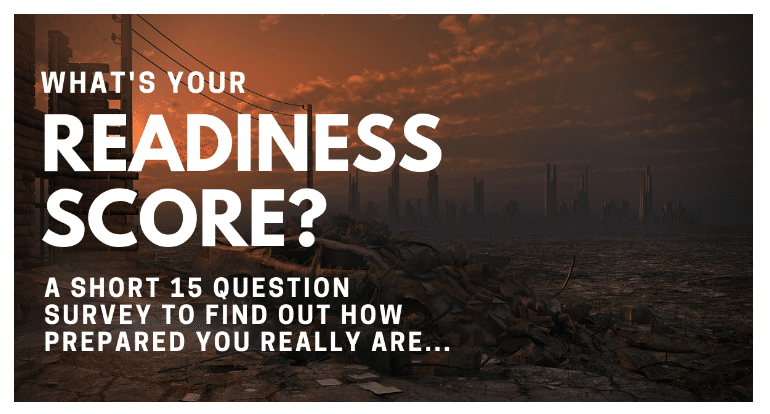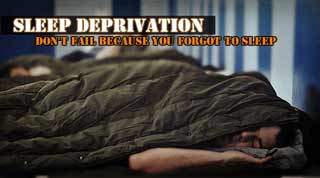
Civilization has collapsed.
Your stores are in place.
You have enough food, water, weapons, and ammo to get you through until the ship is righted.
You even have a plan to carry on if the ship sinks.
But while you stand guard over your lifeblood, you fall asleep at the wheel. The game is over.
Your family’s well-being is in the hands of the bandits you’ve prepared to fight. Your well-being is a thing of the past.
FAIL because you didn’t have a plan for sleep deprivation.
Part of your preparation has to include a military sleep plan. Sleep will come for you. Let it happen when it will do no harm.
Let it come while somebody else has the watch.
As A Way To Introduce You To Skilled Survival, We’re Giving Away Our #78 Item Complete Prepper Checklist. Click Here To Get Your FREE Copy Of It.
Sleep Deprivation Can Kill; Well, Sort Of
Most of us experience some level of sleep deprivation during the week.
Some of us keep ourselves constantly sleep-deprived and proudly proclaim our short nights of rest. Depending on the study, Americans either get an average of 8 hours of sleep per day or less than 6 hours per day.
Maybe sleep polls are like sex polls. We all lie.
Sleep deprivation has never killed anybody on its own, in the same way, a gun has never pulled its own trigger.
A lot of people are dead because they literally fell asleep at the wheel and a lot of people who saw the wrong end of good marksmanship.
The National Highway Traffic Safety Administration says that approximately 100,000 traffic accidents are caused each year by fatigue.
Study after study has shown that you cannot actually die from sleep deprivation.
That is to say, the medical examiner will not write on your death certificate: Cause of Death – Lack of Sleep.
The good doctor will instead note that the system finally failed. Your brain, heart, lungs, kidneys, immune system, digestive system, and even the skin and reproductive system are all endangered by lack of sleep.
If we’re counting systems, this leaves us with the muscular and skeletal systems that are unaffected.
But of course, that’s not true. How strong can your muscles be if your heart and lungs are weak?
Your entire body is a system built on systems, each dependent on the others to keep it working.
The one exception is a rare disease called Fatal Familial Insomnia. Only forty families have experienced it. People with this illness wake up one day and never sleep again.
Something affects the thalamus (the region in the brain responsible for regulating wakefulness and sleep) and sleep never happens again.
After months of panic attacks, weight loss, and dementia, the patient with this unfortunate disease goes into a coma and dies.
Unless you win this terrible lottery, you will not die from sleep deprivation no matter how hard you try. Kidney failure, traffic accident, heart attack, maybe, but not sleep deprivation.
Psychological Side Effects Of Sleep Deprivation
Paranoia, confusion, hallucinations, aggression, and risky behavior are all effects of prolonged sleep deprivation.
Moral reasoning becomes nearly absent in one study, with the subjects instead relying on rote rules and regulations, things conspicuously absent in a SHTF world.
Peter Tripp stayed awake for 201 hours for a radio stunt. He experienced hallucinations starting on day three that moved into legitimate psychosis.
He exhibited constant psychological and personal problems for the rest of his life after his eight days on the radio.
None of these problems were present before his experiment.
Maureen Weston set the record in 1977 with a 449-hour stint of wakefulness but suffered no lasting effects. Everyone who has attempted to remain awake for extended periods of time has experienced a combination of cognitive failure and psychosis.
Maybe that’s a good bit of fun when trying to impress the folks at Guinness (who no longer recognize these records due to the health problems that they cause) but it’s not a good plan for a person trying to survive in an inhospitable world.
Plain grumpiness and tiredness come about after less than a full day of work. Such a mundane issue as being a grump might be significant as you try to lead people to survive.
Now imagine these physical and psychological effects in combination with the fact that all the money in your 401K is gone, you live in a world without rules or regulations, your family’s safety is under constant threat, your neighbors have become opportunistic psychopaths, and all of your hopes and dreams for the future are shattered.
The bottom line is: Sleep is essential.
Sleep is still in that barely understood area of science that has people in lab coats torturing rats and then shaking their heads at the results. We need it. Without sleep, our health is in ruin.
Being awake for just 24 hours straight is equal to being legally drunk in terms of reaction speed and decision-making.
And just like when we drink, we grossly underestimate how impaired we are by sleep.
As A Way To Introduce You To Skilled Survival, We’re Giving Away Our #78 Item Complete Prepper Checklist. Click Here To Get Your FREE Copy Of It.
Sleep Deprivation and Military Task Performance
Back to the two systems that are unaffected by sleeplessness: muscular and skeletal.
There is some truth to the meat skeleton scenario. International militaries have performed countless studies on sleep deprivation and its effect on performance.
If you don’t love the armed forces for the sacrifices they make, at least thank them for their contributions to our knowledge of the human psyche. The warrior has long been a subject of sleep studies of all kinds.
Performance with limited sleep has been an essential interest of every military force since the first caveman decided to attack before daybreak.
Because of these exhaustive experiments, we know that coffee is the only thing that we can trust to keep us awake without making us mad as a hatter.
The Japanese were fond of methamphetamines for their kamikaze pilots, but their fatality rate was fairly high.
Army Field Manual 6-22.5 gives some detailed instructions on how sleep-deprived you can be and still contribute to your team’s cause.
The thesis of FM 6-22.5 and several similar civilian studies is that the more mental acuity the mission requires, the more sleep the subject needs.
You can hammer, march, and even shoot straight without sleep. But, the ability to process new information and good judgment are impaired in the unrested person.
Target identification and reading the blueprint of the structure you’re hammering would best be left to those who caught some shuteye.
Tasks that require you to take in new information and make a decision based on that information are severely hampered by sleep deprivation. But those things that you can do without thinking can be done.
A little slower, a little more grumbling, but they can be done.
FM 6-22.5 says that those in leadership roles need more sleep than the grunts doing the heavy lifting.
The officers in the armed forces get better cots, tents, and some extra time in those cots, not because rank has its privileges, but because history has shown that a sleep-deprived officer is likely to endanger those under his command and flub the entire mission.
When looked at by military historians many brilliant tactical leaders made obvious and deadly errors after too little sleep. One notable general who may have needed a nap was Stonewall Jackson.
His erratic commands coupled with stories of him asleep on his horse, even with a bite of food in his mouth, have led historians to blame his blunders on sleep deprivation.
If you find yourself the leader of your outfit, expect some resistance to your explanation as to why you get the best bed and most hours in it.
How To Get A Good Night Sleep with A Military Sleep System
Sleep hygiene is a tiring subject. How to get a good night’s sleep is one of the most popular Google searches performed each day.
Right up there with “Make a living from home,” and “Last longer in bed.” Each search gives you basically the same results.
Eight hours of sleep a night (the prescribed dose) should be yours with these basic ingredients, though it should be noted that many of these tips are nearly unattainable in a SHTF world.
- Have a bedtime ritual
- Make it dark
- Relax
- Get comfortable
- Stick to a sleep schedule
- Eat and drink healthy food and drink
- Get enough exercise
Have a bedtime ritual.
Even in a SHTF world, you can strive for these ideals.
Having a bedtime ritual may look a bit different. You probably won’t get back to the point of meditating over your lavender candle each night before drifting off.
Maybe making sure you have two full magazines and one in the chamber after a final lap around the perimeter to ensure that the night watch has things under control.
Make it dark.
Light has a huge influence on our sleep patterns.
It doesn’t matter whether it’s sunlight or artificial light, whether it hits you in the eyes or on the back. Light signals the body to be awake. So, do your best to make your bedroom dark.
Relax.
There’s a lot more to the prescription for relaxation than deep breathing.
Eliminating stress right now might mean forgetting the urge to strangle your boss or how many innings your kid might pitch in tomorrow’s game. In a SHTF world, the stressors you’ll face will be life and death.
You need to go to bed knowing that somebody has the watch.
Security lets you relax.
Knowing that you are prepared, that you have enough food and water to make it through the next few days, knowing that your home is fortified. These things will help you relax in a SHTF world.
Feel comfortable.
You should definitely have a good sleeping bag and a good sleeping pad in your bug out bag. A scavenged mattress. Pine needles. A tarp over a bed of grass.
Getting comfortable doesn’t have to be complicated. However, like everything else, those with forethought will be rewarded.
Do not overlook the need for comfort. A pillow is easy enough. Roll up a jacket into your sleeping bag’s packsack. Win.
Stick to a sleep schedule.
This one may be more challenging to bring with you to the SHTF world.
As in normal life, situations will dictate when you go to bed more often than the clock, but try to stick to a schedule as much as you can. Embedded in this prescription is that you sleep at night.
Fighting the body’s natural urge to sleep during the nighttime is a losing battle. Your circadian rhythm is an internal clock of sorts that tells you when it’s time to go to bed.
Without light and stimulants, your body will go down with the sun. Your body wants to sleep at night and your heart rate slows in the evening.
Your temperature drops and your blood pressure goes down.
Unless you have the guard, listen to your body and sleep at night.
The circadian rhythm developed over many generations of life to make you sleepy during the night and awake during the day.
The lightbulb has allowed us to work through the night for less than 200 years. That’s not enough time in the history of our species to overcome 200,000 years of day walking.
You might find that you have somebody in your group who is an anomaly that thrives at night and sleeps with little trouble during the day. Awesome!
If that’s not the case, you may prefer to break your guard into shifts so that everybody gets some sleep at night, but nobody gets to sleep all night.
Eating right.
In a SHTF world eating “right” is going to mean something else than it does in a properly working civilization. It will probably mean simply eating enough.
Fresh produce may no longer be an option, but getting enough calories to do your work and fight off sickness has to be a priority.
As you scavenge for calories, pay attention to caffeine, though.
Don’t down a Monster energy drink right before bed.
Get enough exercise.
This one seems laughable in a SHTF scenario. Whether you’re bugging out, or fortifying to bug in, you should have plenty to do.
If you’re not tired by sundown, you need to reevaluate how much you’re contributing to the team and get off your ass.
If you do find yourself bunkered down in a good stronghold without much to do besides watch, get some movement in the day. Stay strong.
Naps!
“Never stand when you can sit, never sit when you can lie down… and take a nap if the situation allows.” A twenty-minute nap can improve your alertness to nearly 100%.
Studies show that all those cognitive deficits caused by sleep deprivation are no longer issues after a short nap.
As A Way To Introduce You To Skilled Survival, We’re Giving Away Our #78 Item Complete Prepper Checklist. Click Here To Get Your FREE Copy Of It.
Time To Test Your Limits…Within Reason
Train it.
Create a series of tests for yourself that will show you how sharp you are and perform them with good sleep and without. Take apart your weapons and put them back together.
Disassemble your lawnmower and put it back together.
I wouldn’t waste your elk tag on such an experiment, but go varmint hunting after staying up all night. See if you can get the job done.
Don’t try to see how long you can go before you hallucinate. You might not come back to the sane side of the moon.
“A man’s got to know his limitations.” In knowing those limitations, you can push them. You can know what you are capable of.
Test yourself.
You Need A Team To Take “Shifts”
When I started this article, I laid out the basic ingredients for sleep.
I planned a little finger-wagging for would-be tough guys who claim to be in top form with only 2 hours of sleep per night.
Some warnings about how detrimental prolonged sleep deprivation is to your mind and body. But the implications of all those warnings are bigger than the need to buy a nice sleeping pad.
You need more than one person within your circle that you can trust to make the shot. It’s not possible to make a true sleep plan unless you can hand the watch over to somebody else.
This is a whole other article in itself, but being able to sleep safely means being able to let your guard down without abandoning the post.
The idea is to have a 24-hour perimeter watch.
This would be composed of several guns manned by people who can quickly decide who is the enemy and who is the foe, then act accordingly.
Two people at each point in the perimeter to stay awake and honest.
The ideal is long gone in a SHTF world. You will more likely be struggling to have one gun awake at all times.
Maybe you’ve rigged a string and bell system to alert the one sentry. Depending on your manpower, I would recommend two-hour shifts.
One person has the watch from 2200-0000. After midnight, that person wakes the next fireguard who has the watch for the next two hours. Then the first person and everyone else sleeps and so on.
With this system, everyone misses out on some sleep, but nobody goes sleepless.
You can still move, fortify, or forage without having to adjust for one person who needs to sleep all day. And your group and its supplies remain under guard all night.
There is a lot of planning in preparation for a SHTF world. Ammunition without food is not sufficient. Life without water is unsustainable.
Living without sleep will make you a liability. A liability to those who are counting on you, including yourself.
 Actions You Can Take Today
Actions You Can Take Today
1. Create A Sleep Plan With Your Team
If you have a team of 10, great. Create a rotating plan that you can immediately implement when SHTF. Everyone should have a reasonable opportunity for quality sleep nightly.
If your team consists of just you and your significant other, do the best you can. You’ll both need to sleep at some point so the time to talk about it is now. It won’t be ideal, but a plan is better than no plan at all.

Don’t drink it right before sleep.
But if you’re low on sleep, and “something” comes up, you’ll need to power through.
That’s the time to brew a pot.
Cody Mo
P.s. Are you ready for the tough times ahead?
Find out now by taking my short Readiness Score Quiz – it’s absolutely free.
Once complete, you’ll know exactly where you stand on the “fragile” vs.” resilient” spectrum.
So click here to start the Quiz….And don’t worry; the questions are so easy a 3rd grader could answer them.
Click on the image to begin the Quiz and find out once and for all if you’re part of “The Fragile Masses” or “The Resilient Few.”
Photo Credits: Top / Sleep Graph / Psych / Choppers / Stars
The post Sleep Deprivation: Don’t Fail Because You Forgot To Sleep appeared first on Skilled Survival.


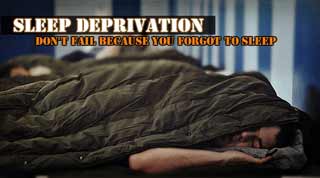
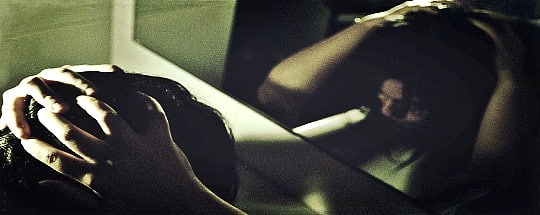
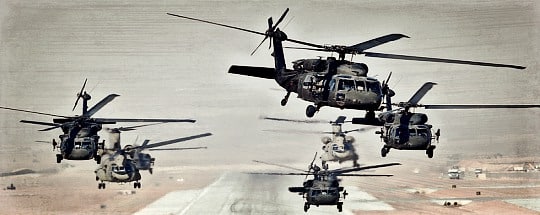
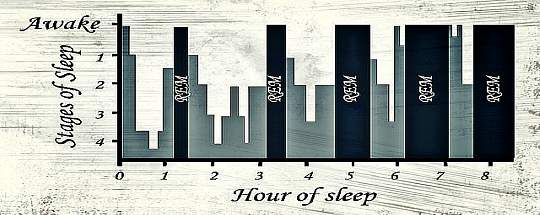

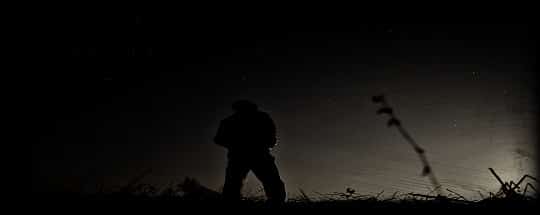
 Actions You Can Take Today
Actions You Can Take Today
